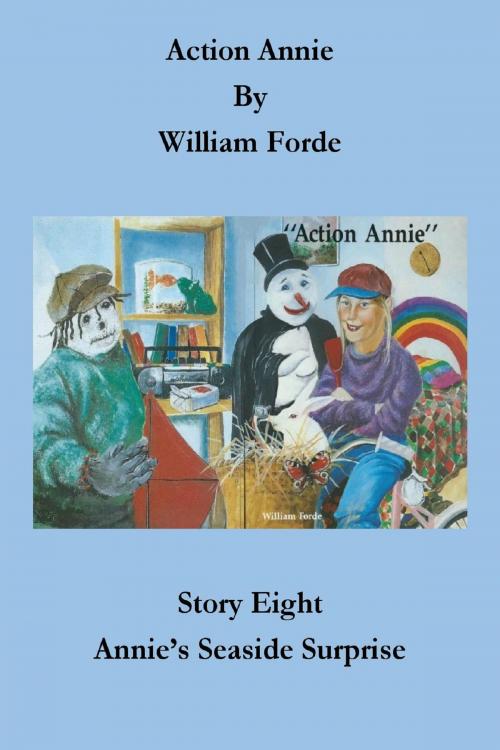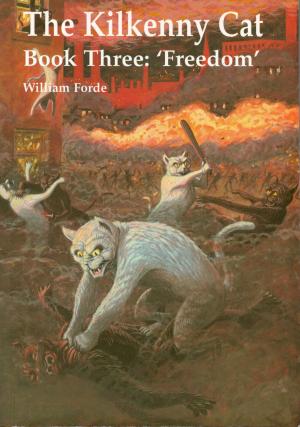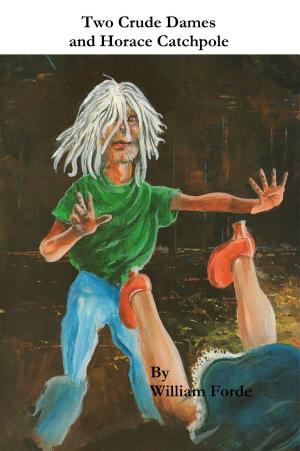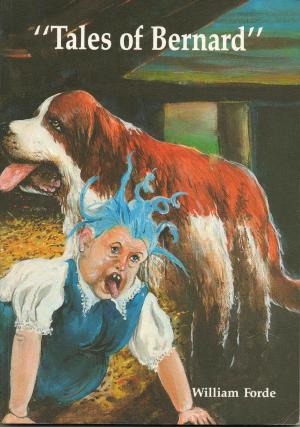| Author: | William Forde | ISBN: | 9781465706249 |
| Publisher: | William Forde | Publication: | February 3, 2012 |
| Imprint: | Smashwords Edition | Language: | English |
| Author: | William Forde |
| ISBN: | 9781465706249 |
| Publisher: | William Forde |
| Publication: | February 3, 2012 |
| Imprint: | Smashwords Edition |
| Language: | English |
It is only in more recent years that the possibility of flight and cheaper travel has made foreign holidays more accessible to the average family. No longer is it so unusual to travel to Europe and even countries farther afield. When I was a child though, almost everyone who went on a yearly holiday went to the seaside for a week. The wealthier families may have travelled there first class, remained longer and may have stayed in swankier hotels and guesthouses than those poorer families, but whatever their accommodation, duration of stay or means of transport, it was undoubtedly to the seaside where they all went! Rich or poor, the children occupied their time paddling in the sea, building sandcastles with their buckets and spades, riding donkeys, flying kites and eating ice-cream cornets. This was Annie’s holiday experience. Has it been yours yet?
Another reason for writing the ‘Action Annie’ stories was to correct an imbalance which had appeared to have developed between girls and boys; and in particular, the differing stereotypes. When one looked at ‘roles’ and ‘the type of behaviour’ that might be ‘expected’ from a boy, but which was wholly ‘never expected’ or considered ‘acceptable’ from a girl; the discrimination practised was more subtle: such as shouting, swearing, fighting, picking one’s nose and even making rude noises in public! In short; ‘Action Annie’ represented ‘girl power’ in action and was my humble attempt of redressing the perceptual balance.
Annie is an imaginative and very active seven-year-old whose mind and body is always on the move. She never seems to stop. Even as she sleeps, she is dreaming about the things she plans to do tomorrow. Annie is always thinking up new ideas and inventing things.
Once she gets an idea inside her head, she becomes determined to try it out. If her ideas don't work out the first time Annie tries them out, she will try and try again. Once Annie has decided to do something, nobody and nothing will stop her.
Annie's head is crammed with ideas and her body is filled with feelings, feelings which she finds impossible to hide from the outside world. Anyone can tell whether Annie is feeling happy or sad by simply looking at her and by listening to what she says, because she just can’t hide her feelings.
When Annie is happy, her smiley face tells you so and when she is sad, the smile on her face will quickly disappear and be replaced by a squashed-tomato look. When Annie is ‘very happy', the smile on her face widens, her two arms begin to rotate like the propellers of an aircraft, her two feet jump her body up into the air and her mouth gleefully yells out, "Yippee! Yippee! Yippee! Yippee for Annie!" But when she’s ‘very angry’, she rotates her arms, jumps in the air and lands saying, “Bother! Bother! Bother! And Double Bother!”
*When Annie gets angry she knows how to get the anger out of her. When Annie wants to get the anger out of her body, she writes it out, she talks it out and she acts it out. If she is angry with someone, she may write them a nasty letter and then tear it up without posting it. When she does this, she finds that expressing her feelings makes her feel a bit better. Whenever Annie becomes annoyed with another person she goes into a corner where she won’t be heard and calls the person a ‘Jolly old stinker!’ If she is very angry, she will go to her bedroom and pretend that the other person is her pillow. Then she will have a pillow fight, expressing her angry feelings to the pillow she is punching. Or she may lie on her back on the bed and peddle her legs up in the air furiously until she is physically exhausted and all the anger has left her body.*
There is a little bit of Annie in every girl and boy. That is what makes her so likable. Are you like Annie in any of her ways?
It is only in more recent years that the possibility of flight and cheaper travel has made foreign holidays more accessible to the average family. No longer is it so unusual to travel to Europe and even countries farther afield. When I was a child though, almost everyone who went on a yearly holiday went to the seaside for a week. The wealthier families may have travelled there first class, remained longer and may have stayed in swankier hotels and guesthouses than those poorer families, but whatever their accommodation, duration of stay or means of transport, it was undoubtedly to the seaside where they all went! Rich or poor, the children occupied their time paddling in the sea, building sandcastles with their buckets and spades, riding donkeys, flying kites and eating ice-cream cornets. This was Annie’s holiday experience. Has it been yours yet?
Another reason for writing the ‘Action Annie’ stories was to correct an imbalance which had appeared to have developed between girls and boys; and in particular, the differing stereotypes. When one looked at ‘roles’ and ‘the type of behaviour’ that might be ‘expected’ from a boy, but which was wholly ‘never expected’ or considered ‘acceptable’ from a girl; the discrimination practised was more subtle: such as shouting, swearing, fighting, picking one’s nose and even making rude noises in public! In short; ‘Action Annie’ represented ‘girl power’ in action and was my humble attempt of redressing the perceptual balance.
Annie is an imaginative and very active seven-year-old whose mind and body is always on the move. She never seems to stop. Even as she sleeps, she is dreaming about the things she plans to do tomorrow. Annie is always thinking up new ideas and inventing things.
Once she gets an idea inside her head, she becomes determined to try it out. If her ideas don't work out the first time Annie tries them out, she will try and try again. Once Annie has decided to do something, nobody and nothing will stop her.
Annie's head is crammed with ideas and her body is filled with feelings, feelings which she finds impossible to hide from the outside world. Anyone can tell whether Annie is feeling happy or sad by simply looking at her and by listening to what she says, because she just can’t hide her feelings.
When Annie is happy, her smiley face tells you so and when she is sad, the smile on her face will quickly disappear and be replaced by a squashed-tomato look. When Annie is ‘very happy', the smile on her face widens, her two arms begin to rotate like the propellers of an aircraft, her two feet jump her body up into the air and her mouth gleefully yells out, "Yippee! Yippee! Yippee! Yippee for Annie!" But when she’s ‘very angry’, she rotates her arms, jumps in the air and lands saying, “Bother! Bother! Bother! And Double Bother!”
*When Annie gets angry she knows how to get the anger out of her. When Annie wants to get the anger out of her body, she writes it out, she talks it out and she acts it out. If she is angry with someone, she may write them a nasty letter and then tear it up without posting it. When she does this, she finds that expressing her feelings makes her feel a bit better. Whenever Annie becomes annoyed with another person she goes into a corner where she won’t be heard and calls the person a ‘Jolly old stinker!’ If she is very angry, she will go to her bedroom and pretend that the other person is her pillow. Then she will have a pillow fight, expressing her angry feelings to the pillow she is punching. Or she may lie on her back on the bed and peddle her legs up in the air furiously until she is physically exhausted and all the anger has left her body.*
There is a little bit of Annie in every girl and boy. That is what makes her so likable. Are you like Annie in any of her ways?















